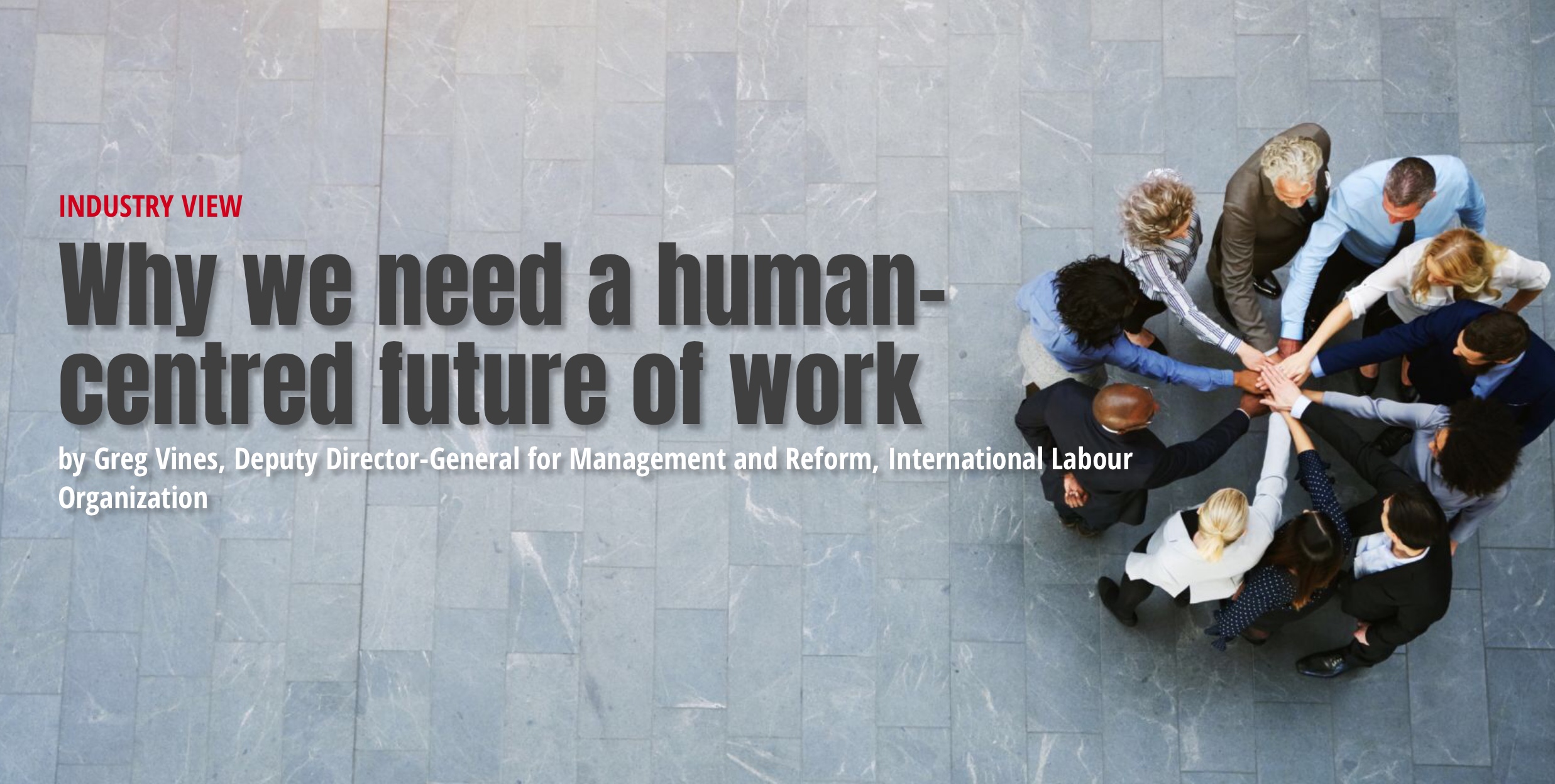By Greg Vines
Deputy Director-General for Management and Reform, International Labour Organization
People need to be at the heart of future of work policies, says the International Labour Organization – the UN agency for the world of work.
Mention the future of work and very quickly questions start to come up: will robots steal our jobs? Will my boss be an algorithm?
The world of work is undergoing transformative change, fuelled by technological innovation, demographics, climate change, and globalisation.
These disruptions, unprecedented in their pace and their scale, raise fundamental questions about the very nature and future of work and, by extension, the place and dignity of people in it. Not surprisingly, there is great uncertainty. People are questioning the capacity of our institutions and our policies to provide them with a future where they can feel secure.
While there is no doubt some jobs will be lost through these changes, there is also a huge potential to create decent work – for example, in the care sector or the green economy. But, at the moment, these are just possibilities. It is up to us to turn them into reality, to shape a future that delivers economic security, equal opportunity and social justice for all people. For example, technology should be used to alleviate drudgery and reduce dangers at work, not dictate how we work. But it is up to us to make sure that this happens, and that humans control the algorithms, not the other way around.
We must be the architects of our common destiny.
In order to take the necessary – and urgent – action, we need to understand and anticipate the transformational drivers of change, and to be ready to respond rapidly to events and challenges.
That is why the International Labour Organization (ILO) convened an independent Global Commission on the Future of Work. Its findings have been taken up in the ILO Centenary Declaration for the Future of Work, adopted by the ILO’s 187 member states at the annual International Labour Conference in June. Its findings have been taken up in the ILO Centenary Declaration for the Future of Work, adopted by the ILO’s 187 member states at the annual International Labour Conference in June.
This ambitious declaration is a short, succinct document that gives strong guidance for the decisive action required from all stakeholders – including governments, employers and unions – to seize the opportunities that lie ahead to create sustainable jobs and improve the quality of working lives.
It offers a roadmap towards a future of work that puts the aspirations, needs and rights of all people at the heart of economic and social policies and business practices.
Its central tenet is that, if we want a just and sustainable future, we must focus on and invest in people. That means investing in jobs, skills and social protection. It means supporting gender equality. It also means investing in the institutions of the labour market, so that wages are adequate, working hours have limits, and safety, health and fundamental rights at work are guaranteed. And it means policies that prioritise economic growth that is sustainable, equitable, and supports decent work for all.
Above all, it means that we cannot sit back and wait for the future to unfold. We must be the architects of our common destiny. The Centenary Declaration gives us a practical and specific blueprint to follow, with social justice at its core.
culled from ILO Newsletter






























